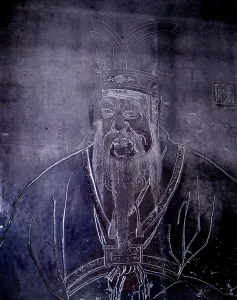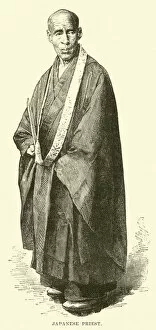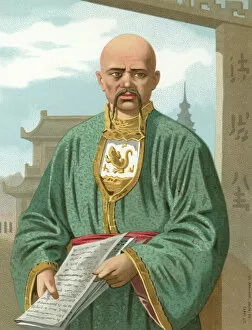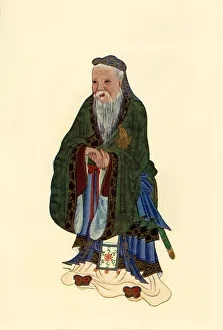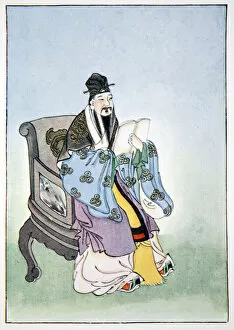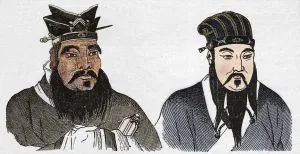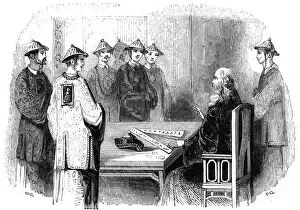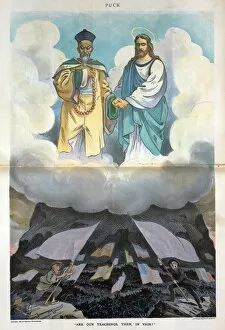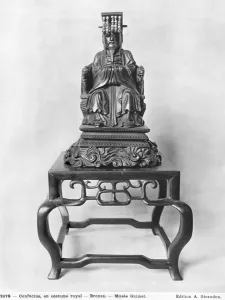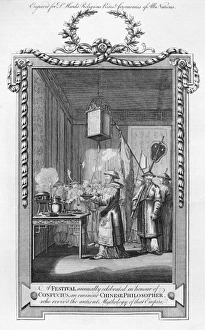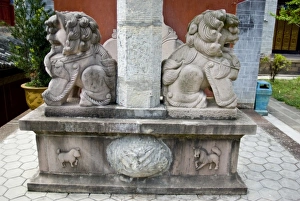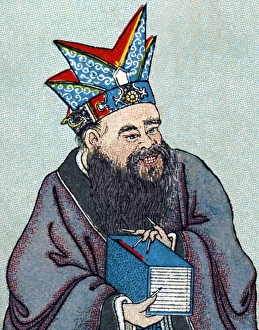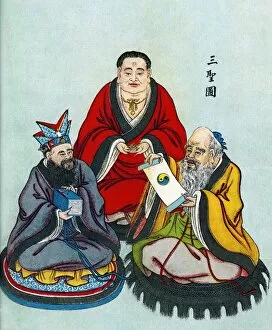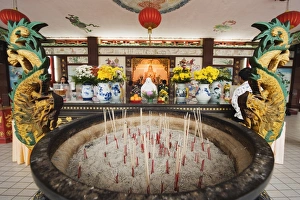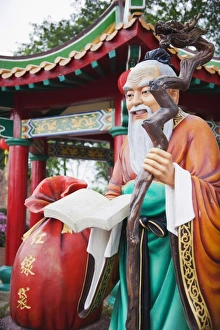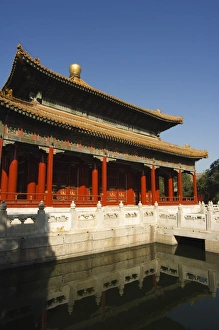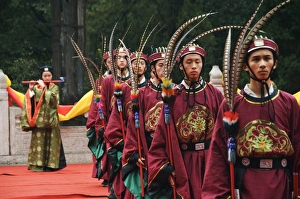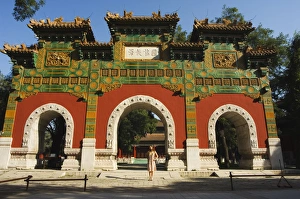Confucianism Collection (page 2)
Confucianism, an ancient philosophy that originated in China, is deeply rooted in the teachings of Confucius and his disciples
All Professionally Made to Order for Quick Shipping
Confucianism, an ancient philosophy that originated in China, is deeply rooted in the teachings of Confucius and his disciples. This influential belief system emphasizes moral values, social harmony, and respect for authority. Alongside other prominent figures like Lao-Tse and Buddha, Confucius played a pivotal role in shaping the cultural fabric of East Asia. In Southeast Asia's historic city of Melaka (Malacca), Malaysia stands the Cheng Hoon Teng Temple. Behind its ornate door lies a sanctuary where followers can seek wisdom from Confucian teachings. Similarly, Shanghai's Confucius temple houses a majestic statue honoring this revered philosopher. The spread extended beyond China's borders as well. Kukai embarked on a voyage to China to study Buddhism but returned with knowledge about this profound philosophy too. A close-up view reveals the intricate details etched into statues depicting wise old Chinese sages who embody the essence of Confucian principles. Meanwhile, Beijing boasts grand temples dedicated to preserving and promoting these teachings. Jianshui in Yunnan Province showcases stunning architectural beauty associated with Confucianism - from elaborate wooden doors guarding sacred spaces to bells that chime harmoniously within temple grounds. Lucky charm tokens serve as reminders of good fortune bestowed upon those who embrace these ethical values. As one passes through the gate leading into Jianshui's Confucian Temple or explores Dongwu Hall within its premises they can enveloped by an atmosphere steeped in tradition and reverence for wisdom passed down through generations. Confucianism continues to be cherished across Asia for its emphasis on morality, ethics, and societal order – guiding individuals towards living virtuous lives while fostering harmony within communities.


